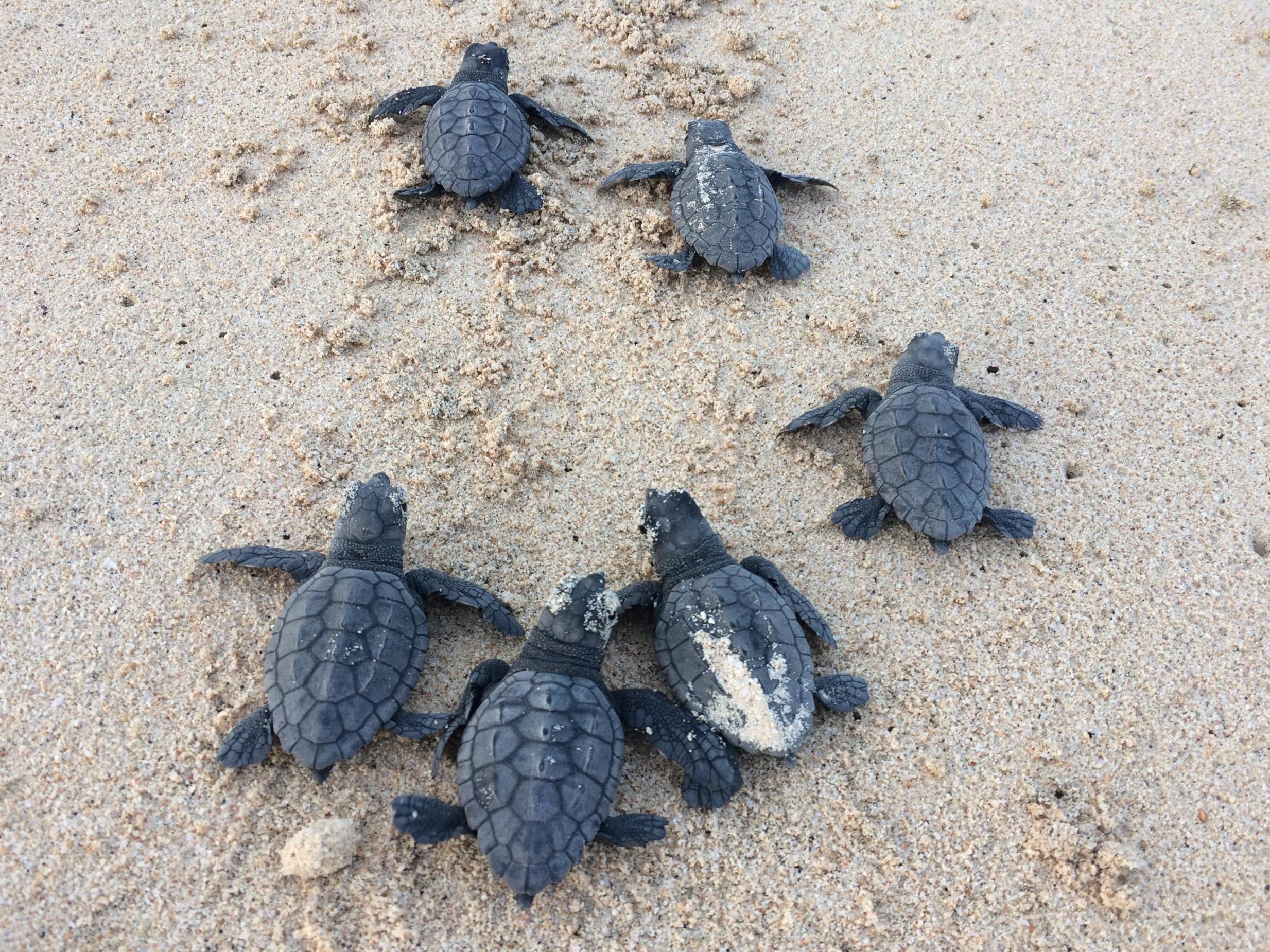Turtles born at key breeding ground will all be turned female by climate change, study predicts
‘What surprised us was how even the low emissions scenario has detrimental effects for this population’

Loggerhead turtles born at a key breeding ground in Cape Verde will all be turned female because of climate change, a new study has warned.
Even under a low emissions scenario, 99.86 per cent of hatchlings would be female by 2100, researchers at the University of Exeter said.
If emissions continue unabated then more than 90 per cent could be incubated at “lethally high temperatures”, killing youngsters before they hatch.
Cape Verde has one of the largest nesting populations of loggerhead turtles in the world, with around 15 per cent of the global nesting total. The sex of turtles is determined by the temperatures at which they are incubated and warm temperatures favour females.
Scientists looked at the Intergovernmental Panel on Climate Change (IPCC) temperature projections for 2100 – low (1.8°C), mid (2.8°C) and high (3.4°C).
Currently 84 per cent of hatchlings at Cape Verde are female, according to their paper published in the journal Marine Ecology Progress Series. Warmer temperatures are set to dramatically increase this.
“Under all three climate change scenarios in our study, by 2100 more than 99 per cent of hatchlings would be female – and under mid and high-emissions scenarios there could be no males at all,” said Dr Lucy Hawkes from the University of Exeter.
Lead author Claire Tanner, who worked on the study as part of a masters at the institution, added: “What surprised us was how even the low emissions scenario has detrimental effects for this population. What this shows is that now is the time to act on climate change – before it is too late to prevent the estimations seen in this paper.”
Projections are based on current nesting behaviour and researchers say loggerheads could adapt by nesting earlier in the year when it’s cooler.
In theory, natural selection will favour turtles that do this but the speed of climate change is likely to mean they cannot evolve fast enough.
Scientists said the turtles might benefit from specific features such as shade under trees, which could provide slightly cooler conditions.
The reproductive lifespan of males is not known so older males might continue breeding years after new males stop being hatched, although at some point the population is very likely to crash.
Last year research led by the World Wide Fund for Nature (WWF) Australia found that more than 99 per cent of green turtles being born in parts of the Great Barrier Reef were female.
They also warned that turtle populations faced “complete feminisation” in the near future. In some northern beaches near Australia’s Great Barrier Reef, scientists found that virtually every juvenile turtle was female, and over 85 per cent of the adults.
Subscribe to Independent Premium to bookmark this article
Want to bookmark your favourite articles and stories to read or reference later? Start your Independent Premium subscription today.

Join our commenting forum
Join thought-provoking conversations, follow other Independent readers and see their replies